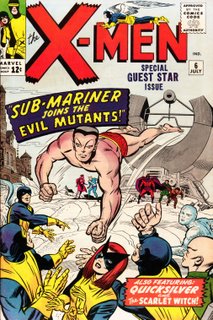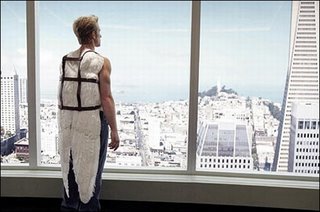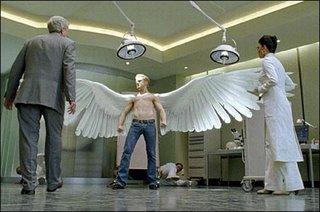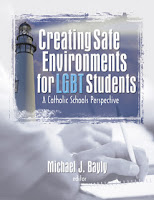
Like the various mutants in the film, gay, lesbian, bisexual, and transgender (GLBT) persons are considered by many as not only “different,” but freakish and potentially dangerous.
Gerard Jones, author of the book Men of Tomorrow: Geeks, Gangsters and the Birth of the Comic Book, observes that when the X-Men first rose to popularity in the late 1970s (interestingly, the same decade as “gay liberation”), they set a new precedent with regards to how superheroes interacted with the world around them. For one thing, comic book superheroes were no longer compelled to uphold “protective dualities of public and private selves” – as in the case of, say, Superman and Clark Kent.

Yet not only did the X-Men not have secret identities, says Jones, “they wrestled openly with the challenges of their mutant ‘otherness.’ Their stories were not about keeping secrets, but about creating family and identity with the help of other oddballs.”
The three X-Men films of recent years have admirably conveyed this struggle to create family and identity in a hostile world – something to which many GLBT people can readily relate.
Many of the young mutants who find their way to the boarding school established by the X-Men to help them accept and integrate their unique gifts, are reminiscent of GLBT youth living and struggling with questions related to sexual orientation and identity. Like the young mutants in the film, many GLBT young people are also feared and ridiculed by family and friends, and many are either kicked out of or run away from home.
In X-Men 3: The Last Stand, the need for places of refuge is brought into question when a “cure” is developed for the “mutant gene.” The mutant community is divided. Some, weary of being viewed and treated as outcasts, are eager to be “cured.” Yet others, including many of the X-Men, along with their nemesis, Magneto, angrily denounce the need for a cure and all that it implies about who they are. “We’re not a mistake,” says the character Storm, echoing the very real sentiment that GLBT people hold of their sexual orientation.

In the film, both the US government and Magneto’s actions conjure images of the rise of Nazi fascism; both desire their own brand of conformity – the government by imposing a “cure” of mutant “otherness”, Magneto by attempting to incite a war that would ensure the eradication of all non-mutants. The X-Men – true to form – valiantly struggle against both of these extremes as they attempt to build bridges of respect and understanding between the mutant and non-mutant worlds.
At the end of the film, this “bridge-building” is appropriately symbolized by an angel-winged mutant soaring above the rebuilding of San Francisco’s Golden Gate Bridge – which earlier had been spectacularly hijacked and wrecked by Magneto and his mutant army.
Watching X-Men 3: The Last Stand, I couldn’t help but marvel (no pun intended) at how this work of filmmaking can readily be perceived as eclipsing the leadership of the Catholic Church in understanding and articulating Jesus’ message of radical hospitality as it relates to GLBT people.
Without doubt, the Vatican speaks of such people as if we were mutated freaks; victims to unnatural passions, and incapable of contributing to what is said and taught about us.
Indeed, as gay British theologian James Alison has observed, “[In Vatican documents], we are only a ‘they’ – objects referred to. . . We are not capable of being subjects by virtue of our having ‘come out,’ our having come to regard being gay or lesbian as part of our lives to be welcomed. The only ‘homosexual’ persons who might be subjects in such discourse are those who accept that [in the language of the Vatican] their inclination is a more or less strong tendency towards acts which are intrinsically evil, and must therefore itself be considered objectively disordered.”
Such language, of course, ensures incidents like those at the Cathedral of St. Paul, where GLBT Catholics were recently denied communion. Obviously, it will take more than their viewing of the X-Men before Vatican officials recognize how untenable their language is in light of the life and message of Jesus. Ultimately what’s needed is for these same officials to open themselves to God’s presence in the lives and relationships of GLBT people.
And if this were to happen, they wouldn’t need to watch the X-Men. For in a world plagued by injustice, elitism, and irrational fears of “the other,” their joining with us in the courageous, dare I say, super-heroic embodiment of such a welcoming and compassionate spirit would make X-Men of us all.

See also the related Wild Reed post:
• The New Superman: Not Necessarily Gay, but Definitely Queer.






















1 comment:
I´m Armando.
Loved the movie. Y agree with you.
Post a Comment